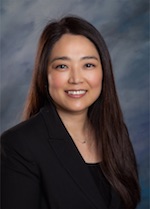
California’s End of Life Option Act was set in motion after Brittany Maynard, a California woman with inoperable brain cancer, moved to Oregon to hasten her death.
Modeled after Oregon’s Death with Dignity Act, the End of Life Option Act will take effect June 9th. With this law, California will become the fifth and the largest state to allow doctors to prescribe lethal medications to terminally ill, mentally competent, adult residents of California.
The End of Life Option Act provides legal immunity for participating physicians and pharmacists with an option to opt out. Once the “aid in dying medication” is requested and obtained, the patient must self-administer the medication to end their lives. To obtain a fatal dose of barbiturates under the End of Life Option Act:
- Two physicians must agree that patient has less than six months to live
- Patient must express their wish to hasten their deaths by providing:
- Two oral requests submitted at least 15 days apart, and
- One written request signed by at least two adult witnesses
Physicians cannot grant requests for prescription made on behalf of the patient through power of attorney, advance health care directives, or conservatorship. Click here for details.
“Physician - assisted death” or “physician - assisted suicide” is an incredibly controversial topic – one in which kind, compassionate, and thoughtful people often disagree and end up advocating for opposing sides.
Here, two distinguished faculty physicians from Loma Linda University Health make a compelling case for and against the enactment of California’s End of Life Option Act.
California’s End of Life Option Act is good law, good ethics, and good medicine. by Dr. Philip M. Gold
There is a fundamental ethical difference between “allowing to die” and “killing.” by Dr. Gina Jervey Mohr
Helen Jung, DrPH, MPH
Dr. Helen Jung is the Senior Health Policy Analyst for IHPL and serves as an Assistant Clinical Professor in Loma Linda University’s School of Public Health. She conducts policy research and analysis as well as developing publications on key policy issues for the Institute and the Adventist Health Policy Association. Dr. Jung received her Doctorate in Health Policy and Management from UCLA’s Fielding School of Public Health and holds a Master of Public Health from the University of Michigan, Ann Arbor.
For more information, contact Helen at: [email protected].
Did you like this article? We want to hear from you! Leave your comments or questions in the space below.
Please note that the views expressed in this article do not necessarily represent those of Loma Linda University Health or the Institute for Health Policy and Leadership.

